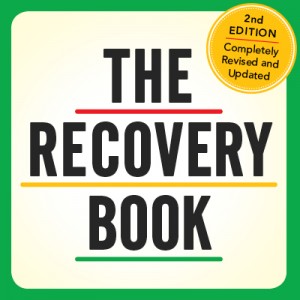College campuses can be minefields for recovering drinkers and drug users. Many of them are as well known for partying as for scholarship. Frank B. dodged that bullet when he registered at Georgia Southern University. With support from the Willingway Foundation, Georgia Southern opened a Center for Addiction Recovery, a program that serves the needs of students in recovery. It is one of a growing number of colleges where students in recovery can find a “safe harbor.” Here’s what Frank experienced.
I had quite a few concerns about transitioning from a halfway house into college. The main one was the fear of losing my newfound sobriety in an environment where a lot of students were probably there as much for a good time as for an education. I worried, too, that there’d be a stigma on campus to enrolling specifically in the university’s Center for Addiction Recovery (CAR). Good news. When the subject came up, fellow students just figured the CAR was a division of the psych department. They assumed I was majoring in the study of addiction and recovery.
I’d majored in drinking and drugging in high school, so I knew more than I needed to know on that subject already. The Center put me – all 40 of us – at ease right away, and not just educationally. We have our own social life and events. We do barbecues and parties. We’ve gone as a group to Braves games. We have service opportunities – like helping to build a haunted house in the woods that’s part of an annual fundraiser for the Boys and Girls Club. A group did a study abroad program; we went to Africa together for a study, service, and learning experience. There’s a sense of brotherly camaraderie from these things that other students get from partying and bar-hopping. Ours is a lot safer.
Time magazine ran an interesting article about the oldest Recovery Campus, which opened at Rutgers in 1988. Students there seem to feel the way we do: having buddies to hang out with who have the same problems and never having their studying interrupted by a friendly soul offering them a joint is crucial. The article reported that a fraternity president, who’d flunked all his courses the previous semester, escaped the distractions of “pot in my face all the time” and “Hey, let’s get high together!” by switching to the Rutgers recovery dorm – one of the few dorms on campus with no keg on its back steps. It’s been such a success at Rutgers that more than 100 graduates showed up at a recovery alumni reunion to praise it and give thanks for their successes at school and afterward.
Here at Georgia Southern, as at Rutgers, we share our fears and problems at weekly seminars run by the recovery center’s director. Sometimes they’re structured around points she wants to bring up about stressors or goals and time management concerns. Often they’re just, “What’s going on in your lives?” We hear things like, “I’m in my first semester. It’s tough balancing work with school. I’m worried about failing and maybe dropping out.” Students share their own experiences with what worked and what didn’t. That and lots of freely given encouragement can help a lot.
Self-doubt is common in alcoholics and addicts, but attending AA meetings is an integral part of maintaining sobriety and helps to bolster our confidence in the rich possibilities of long-term recovery. Some students attend meetings not only on campus, but also with the recovery community in town where 10-year, 20-year, and far longer recoveries abound.
Myself, I’m a second semester sophomore headed for a business degree. I was forced to take a two year delay when, ten months sober, I was diagnosed with an unexpected illness. It was a great excuse for a relapse — a “get out of jail free card” allowing me access to a world of prescription medications. I took only those my doctors told me I absolutely had to and, with the help of my recovery community and what I’d learned so far, thankfully was able to maintain my sobriety. I want and need to stay that way no matter what.
I’m grateful that I found recovery so early in life and I’m happy to be living a sober life in college. I thank the intervention that got me here. Some of my college peers think drinking and doing drugs is cool. Maybe it is for them. But for me and my sobriety, the educational and life opportunities that I have at my fingertips now are much cooler.


Pingback: Back to School & Sober: 12 Tips for Success |